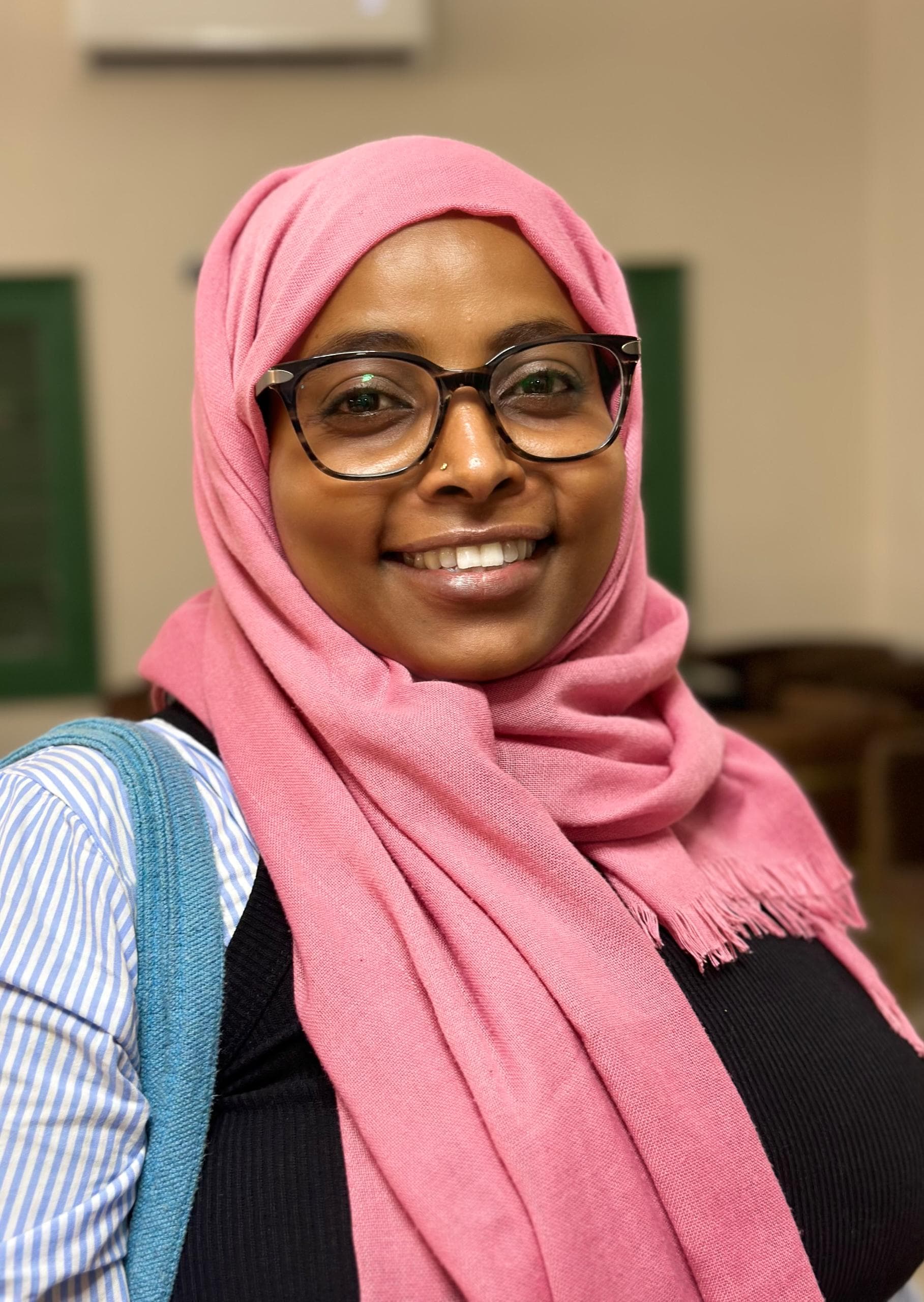مع طلقة رصاصة حرب 15 أبريل/ نيسان دوت صرخة الحقيقة؛ ففي خضم الصراع الدائر في السودان واجه الصحفيون والصحفيات تحديات جسيمة تاركين وراءهم الصحف الورقية الصامتة ليتجهوا إلى ساحات النضال الرقمي. انقسم الصحفيون إلى فرق كثيرة، منهم من دعم بوضوح الأطراف المتصارعة، بينما اختار فريق يعمل في صمت دربَ رواية الحقيقة بمعايير مهنية وأخلاقية في ظروف صعبة للغاية ومعقدة تبرز معاناة المواطن في ظل تشدد أطراف النزاع في مناطق سيطرتهم. كما اتجه فريق آخر إلى مهنٍ أخرى بعيدا عن الصحافة، تؤمن لهم لقمة عيش وتجنّبهم انكسار السؤال.
لكن واقع التهديدات والانقسامات تفشّى حتى وصل المنصّات الرقمية؛ فالجميع يسعى جاهدا لإظهار إخفاقات الطرف الآخر أينما تسنّى ذلك. ووسط هذا الصخب ضاعت الحقيقة بين براثن الشائعات والأخبار الكاذبة. بيد أن بعض الصحفيين لم يستسلموا لتلك الفوضى فطاردوا الأحداث المتسارعة في أرجاء البلاد ورصدوا ردود الفعل الدولية والإقليمية وميزوا بين الدعاية الحربية والمعلومات الموثوقة.
شكلت حرب 15 أبريل/ نيسان منعطفا خَطِرا في مسار الصحافة السودانية؛ فبينما واجهت الصحف الورقية "خُسوفا" إجباريا، برز دور الصحافة الرقمية بوصفها بديلا جديدا للدفاع عن الحقيقة.
وفقا لتقارير صادرة عن نقابة الصحفيين السودانيين، تعرضت صحفيّتان لأحداث مؤلمة؛ إذ توفيت حليمة إدريس بعد أن دهستها سيارة تابعة لقوات الدعم السريع في أثناء تأدية عملها، وفي السياق نفسه تعرضت سماهر للتهجير من منزلها في وسط دارفور، لتستقر في معسكر للنازحين الذي تم ضربه بمدفعية أدت إلى تدميره. إضافة إلى ذلك، اختفت قسرا 8 صحفيات وتعرضت 3 صحفيات للإصابة، وكانت صحفية أخرى ضحية للعنف الجنسي، بينما تلقت 9 صحفيات تهديدات شخصية.
ولعل من التحديات الأساسية التي يواجهها الصحفيون السودانيون هي المعاملة المذلة والإساءة المستمرة والتضييق والاعتداءات، ما يدفعهم إلى إخفاء هوياتهم لتجنب أي استهداف مباشر من الأطراف المتحاربة. إنّ مجمل الحالة التي يعيشها الصحفيون والصحفيات تخلق شعورا بالخوف الدائم وعدم الأمان يعوقهم عن العمل والحركة ويقمع قدرتهم على التعبير بحرية.
قصة سارة
تروي الصحفية سارة تاج السر أن كثيرا من الصحفيات "يعشن أوضاعا صعبة ويواجهن مخاطر يومية بحثا عن الحقيقة وسط الاقتتال الدائر بين الجيش السوداني وقوات الدعم السريع وسوء الاتصالات والإنترنت، وقد سبب لي المكوث في أم درمان حتى شهر أغسطس وانتقالي إلى مدينة عطبرة لمواصلة عملي صدمة كبيرة".
تشير سارة إلى التحديات التي واجهتها في الحصول على المعلومات؛ إذ كان الجيش السوداني يكتم التصريحات ويترك الساحة فارغة لقوات الدعم السريع التي تهيمن على المشهد الإعلامي مبرزة صعوبة التحقق من صحة المعلومات، ولا سيما فيما يتعلق بقضية الاغتصاب التي ارتكبتها قوات الدعم السريع أمام صمت الناجيات خوفا من الملاحقة.
هذا الطوق المفروض على المعلومات دفع بسارة إلى الاستعانة بمراكز العلاج النفسي ولجان المقاومة بالأحياء لجمع المعلومات خوفا من الاعتقالات التي تعرض لها الصحفيون من كلا الطرفين.
كان الجيش السوداني يكتم التصريحات ويترك الساحة فارغة لقوات الدعم السريع التي تهيمن على المشهد الإعلامي مبرزة صعوبة التحقق من صحة المعلومات، ولا سيما فيما يتعلق بوقائع الاغتصاب التي تتهم قوات الدعم السريع بارتكابها، مع استغلال صمت الناجيات خوفا من الملاحقة.
محنة مضاعفة
تسرد الصحفية السودانية (هـ/ م) قصة مروّعة عن معاناتها خلال عام من الحرب، ولا سيما أنها تنتمي إلى إثنية تعرضت لمذابح على يد قوات الدعم السريع بمدينة الجنينة في غرب السودان.
عانت (هـ) من ضغط نفسي هائل خلال الأشهر الطويلة الماضية، ولا سيما خلال فترات انقطاع الاتصال بأشقائها في الجنينة، الذين يواجهون خطر الموت من كل جانب، وهو ما اضطرها إلى الانتقال من مكان إلى آخر هربا من الاستهداف بسبب إثنيتها أو بسبب مهنتها كصحفية. اليوم، استطاعت الصحفية الوصول إلى منطقة آمنة خارج السودان تضمن لها هي وعائلتها حدا أدنى من الحياة الكريمة بعيدة عن الخوف من احتمالات العذاب وهاجس الملاحقة.
المعاناة النفسية
أما الصحفية السودانية الشابة سلمى عبد العزيز، فترى أن المحنة التي واجهتها الصحفيات السودانيات خلال الحرب تجاوزت المخاطر الجسدية لتشمل النفسية والاقتصادية.
وعلى الصعيد النفسي توضح سلمى أن غياب الدعم النفسي ترك آثارا مستمرة حتى الآن؛ إذ عانت عدة صحفيات –وهي منهنّ- من القلق واضطراب النوم والكوابيس المزعجة والخوف من المجهول.
وتتفاقم معاناة سلمى النفسية بالتعرض المباشر للمخاطر وفقدان الزملاء والأصدقاء والنزوح القسري مع صعوبة الحصول على الدعم. أما عن الجانب الاقتصادي فتقول: "أن تستيقظ فجأة وتجد نفسك بلا عمل وبلا مصدر دخل ليس بالأمر السهل".
على الصعيد النفسي توضح الصحفيات أن غياب الدعم النفسي المتخصص ترك آثارا مستمرة حتى الآن؛ إذ عانت عدة صحفيات من القلق واضطرابات النوم والكوابيس المزعجة والخوف من المجهول.
هذه قصتي
قصتي كصحفية لا تختلف عن زميلاتي كثيرا؛ إذ قررنا مغادرة الخرطوم بعد مرور 75 يوما من اندلاع الحرب، متجهة إلى مدينة مدني في وسط السودان رغم التحديات والتهديدات الجمّة.
كنت أخشى على نفسي وعلى عائلتي التي تعرضت للتهديد من قبل أفراد الدعم السريع أثناء السفر، وكانت والدتي قلقة بشكل خاص على سلامتي؛ لذلك أمرتني بوضع الحناء على يدي إشارةً للآخرين بأنني متزوجة؛ لأن الفتيات كن مستهدفات بشكل مباشر.
"كنت أخشى على نفسي وعلى عائلتي التي تعرضت للتهديد من قبل أفراد الدعم السريع في أثناء السفر، وكانت والدتي قلقة بشكل خاص على سلامتي؛ لذلك أمرتني بوضع الحناء على يدي إشارةً للآخرين بأنني متزوجة؛ لأن الفتيات كن مستهدفات بشكل مباشر".
ما زالت المعاملة السيئة تجاه الصحفيين مستفحلة باستهداف قنوات ومنصّات إعلامية من قبل أطراف الصراع بحجة عدم الالتزام بالشفافية والمهنية المطلوبتين، مع أن الغرض الأساسي من وراء ذلك هو تضييق الخناق على الصحفيين الذين يسعون إلى كشف الحقيقة وتسليط الضوء على معاناة المواطنين وأداء أدوارهم المهنية المنوطة بهم.
الواضح أن الدولة لم تتخلّ عن تلك العقلية التي سادت إبان حكم النظام السابق في التعامل مع الصحفيين، حيث يتواصل تشديد القبضة وتجاوز الحدود وعدم احترام القوانين الوطنية والمواثيق الدولية التي تكفل حق الصحفيين في ممارسة مهنتهم بحرية ومن دون أي قيود.
تسعى الأطراف المتحاربة إلى تغطية انتهاكاتها باللجوء إلى منع الصحفيين من ممارسة المهنة باحترام معاييرها المعروفة للوصول إلى المعلومة الموثوقة وتقديمها إلى المواطنين.
ينبغي أن يتعامل المجتمع الدولي مع هذه الأوضاع بجدية، وأن يعمل على تحسين بنية الاتصالات وتوفير حماية للصحفيين لتمكينهم من العمل بحرية وبشكل آمن، ولا سيما مع تقطّع شبكة الإنترنت في الخرطوم وأجزاء من الولايات الأخرى، ما يجعل الانتهاكات التي تقع هناك "خارج التغطية".







































